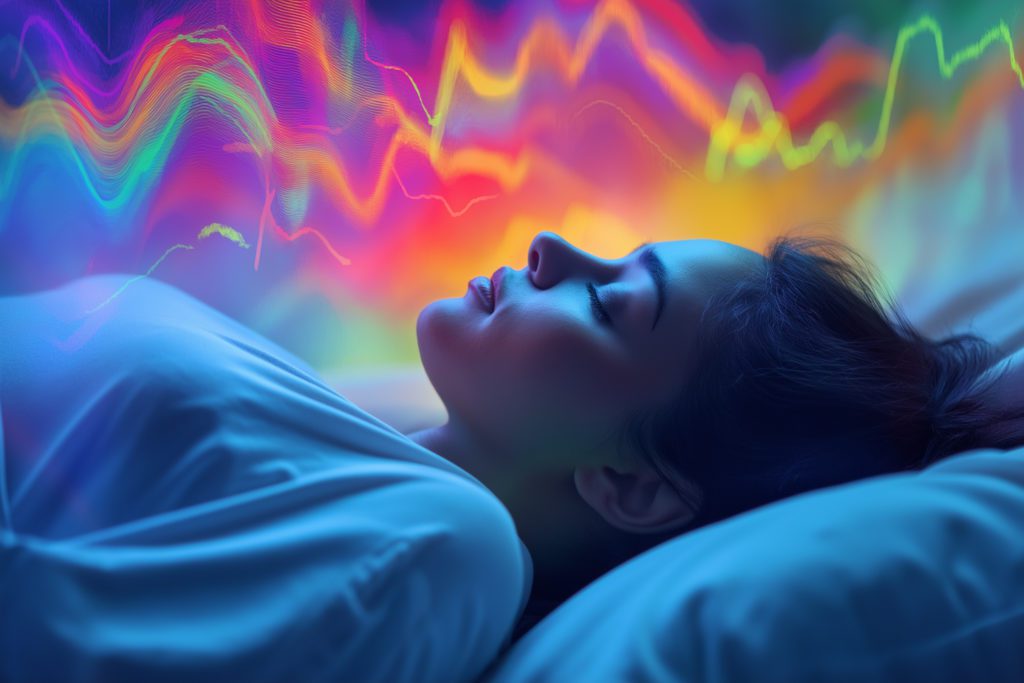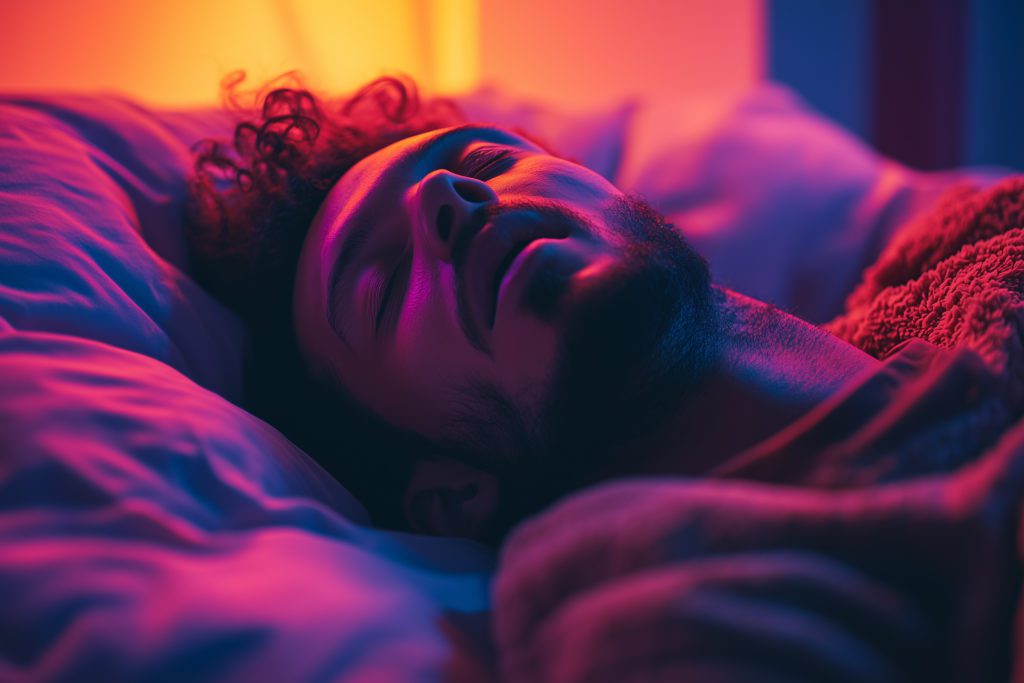
How Does My Brain Know I’m Conscious During Sleep?
Your brain remains active during the night, even when you’re asleep. Explore what tasks the brain completes during the night and how it knows to keep working.

Sleep is often considered a time of unconsciousness, and, in a way, that’s true—but it’s also not; it all depends on how you interpret the word conscious.
If you think of consciousness as an awareness of and ability to respond to what happens around you, then during sleep, you are undeniably unconscious. However, if consciousness is achieved so long as there is mental activity, then the brain is, without a doubt, conscious during the night.
As for how the brain knows that it has work to do once your eyes close for the night, there are many systems in place that are all waiting for the signal that you’re asleep in order to get started.
How Does My Brain Know I’m Still Conscious During Sleep?
Have you ever wondered how it is that your brain knows you’re conscious while sleeping and thus continues to perform key bodily functions such as breathing and pumping blood?
Even though you may no longer control what goes on with your body at night and won’t return to mental consciousness until morning, your brain doesn’t shut down during the night. In fact, even though you are no longer responding to what is around you, your brain is continuing with involuntary processes, such as breathing.
So as long as your brain continues to receive blood (and all the nutrients it transports) and oxygen, it will continue regulating these autonomic processes.
Think of it this way: during the day, you don’t have to remind yourself to breathe; you do it naturally, and the same occurs at night. You don’t need to consciously tell yourself to breathe or focus on pumping your heart; the brain naturally regulates these activities.
Even more, just because you think that your brain “turns off” at night doesn’t make it true. In fact, the brain is just as active during REM sleep (the sleep stage often associated with dreaming) as it is while awake, so your brain is no less alive at night than it is during the day. The only difference is that, at night, automatic processes take over. Additionally, with fewer stimuli coming in, the brain can focus more on repairing and managing what already exists.
We can tell that the brain remains active during the night thanks to EEGs, which are electrical recordings of brain activity. It’s actually through EEGs that we have been able to differentiate the four different sleep stages—each has a distinct pattern.
In the early non-REM sleep stages, brain waves slow down considerably, whereas stages 2 and 3 show numerous quick bursts of brain activity. This all culminates in REM sleep, where brain activity accelerates and shows noticeably different types of brain waves.
So, your brain always knows that you’re conscious because it never stops chugging along at night.
What Happens in The Brain During Sleep?
If you think that your mind is inactive during sleep, think again. There are several parts of the brain involved with sleep.
The Hypothalamus
The hypothalamus is small but mighty. This peanut-sized structure found deep inside the brain contains groups of nerve cells that act as control centers, and two elements they control are sleep and arousal.
Specifically, there’s the suprachiasmatic nucleus (SCN), which is comprised of clusters of thousands of cells. These cells receive information about light exposure from your eyes and control your circadian rhythm (i.e. if you fall asleep or wake up).
Thus, it’s the SCN that we can thank for regulating our sleep-wake cycles, and for processing cues that it’s time to go to sleep.
The Brain Stem
At the base of the brain is the brain stem, which contains a direct line to the hypothalamus. Across this line, the brain stem helps control the transitions between wake and sleep.
In both the brain stem and hypothalamus, sleep-promoting cells called GABA are produced. These cells reduce the activity of arousal centers in the brain stem and hypothalamus, allowing you to drift off to sleep.
The Pineal Gland
Found between the two hemispheres of the brain, the pineal gland receives signals from the SCN and increases melatonin production accordingly.
The Thalamus
The thalamus takes information from the senses and relays it to the cerebral cortex, which is the covering of the brain that interprets information and processes it from short- to long-term memory.
During most of the night, the thalamus is inactive, allowing you to tune out the world and rest deeply. However, during REM sleep, the thalamus is active and sends sounds, images, and other sensations to the cortex. The result of this appears in our dreams.
The Sleeping Cascade
Now that we’ve seen all the parts of the brain involved in sleep, let’s take a tour through what happens to the brain when you fall asleep. Even though it may feel like you pass from consciousness to unconsciousness between one breath and another, it’s actually a series of highly orchestrated events.
Sleep starts in the brain areas where slow-wave sleep is produced. There are two groups of cells—the parafacial zone in the brain stem and the ventrolateral preoptic nucleus in the hypothalamus—that prompt SWS. When these cells switch on, we drift into sleep.
After SWS, a small group of cells in the hypothalamus, the SCN, controls REM sleep.
What Happens with Sleep Apnea?
Sleep apnea is a sleep disorder characterized by episodes of stopped breathing. Most cases of sleep apnea are due to obstruction, such as your tongue blocking your airways or throat tissue creating a narrow passageway to breathe through.
However, with central sleep apnea, these episodes of stopped breathing occur because your brain doesn’t send the right signals to the muscles in charge of breathing. Usually, this type of sleep apnea occurs because of other health conditions such as heart failure, stroke, drug use, being at a high altitude, or end-stage kidney disease—not because your brain forgot you were alive.
You May Be Asleep, But Your Brain Isn’t
While you may find yourself waking after a long night of sleep, with the hours passing in what felt like seconds, don’t think that your brain was entirely inactive during the night.
Even when we’re asleep, the brain is hard at work not only keeping us within a sleep state but also processing information, storing what’s important as long-term memories, and aiding the body as it does its nightly processes and repairs.
So, even though you’re asleep, it’s not as though your brain ever questions if you are still conscious—it never stopped working, and all the automatic processes kept on going through the night. Rest easy, and know that your brain will take care of everything while you sleep.

Written by
Jessica G
Medical writer freelancer who has written hundreds of articles on varying topics. Masters of Engineering degree in Biomedical Engineering.
Download Pillow
Get help
Press & News
Legal
Connect
X (Twitter)
Company
Copyright © Neybox Digital Ltd.



